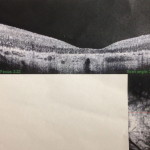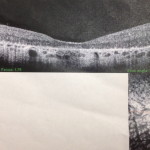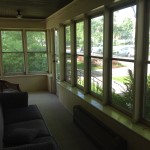I vaguely recall learning about Stephen Karpman’s Drama Triangle in a general psychology class years ago. I recently decided to take a closer look at the 3 roles Karpman pinpoints (persecutor, rescuer, victim) because I was feeling like I might be playing the victim role in some situations in my life. I was trying to figure out why there are certain family/friends or even strangers who seamlessly offer me assistance in dark or crowded places and I feel no sense of shame or inadequacy. I walk away from these situations feeling grateful for their assistance and yet still confident and independent. While there are a few people in my life who awkwardly grab my arm and forcefully “guide” me in the direction they’d like me to go. I leave these situations feeling stupid, embarrassed, helpless – a victim. Rather than repeating these uncomfortable situations, I am trying to come up with new assertive ways to stay out of the victim role.
Simply communicating with people about my needs and preferences is key to avoiding victimhood. Although I studied interpersonal communication as one of my majors in college, utilizing these skills can be challenging when it comes to RP. I get nervous, I freeze up, I think all sorts of thoughts in my head, and cannot seem to effectively articulate myself. I’ve started “rehearsing” various situations in my mind and with trusted friends. I know the more I practice communicating my needs, the better I will become at reacting to or preventing awkward scenarios. I’ve also spent time reflecting on past situations and what I liked or did not like about how I handled them.
In addition to taking a closer look at my own behavior in these scenarios, I also decided to learn a little bit more about the “rescuer”. People that take on this role feel a strong need to help others, although their motives are often focused on their own self-esteem. Now I am certainly not labeling anyone as a dysfunctional “rescuer” just because they’re eager to assist me when I’m having trouble navigating. I’m not even entirely sure the drama triangle can be applied to the awkward encounters described above. I am mainly trying to identify what these situations can teach me about myself and others. After some careful examination, I have come to the conclusion that certain people just need a little extra assistance learning how to assist. Sounds funny, I know. But stay with me.
I think that the people who help me in forceful or awkward ways would choose a different approach if they could envision themselves with RP or any sort of disability. I was touched by a story a friend told me recently about a photographer who wanted to know what it was like to live with RP after his best friend was diagnosed with the disease. He made pinhole glasses for himself and wore them everywhere he went for an entire month. The range of emotions he went through were very real, despite the fact that he knew he could take off the pinhole glasses at anytime. I can’t say for sure, but I would be quite surprised if this photographer plays the “rescuer” role in life.
For me, one of the best ways to stay out of the dysfunctional darma triangle is to simply be aware of it. Not every situation may play out exactly how I want it to, but I do have the power to be assertive and pre-emptive. For example, at a family reunion this summer, everyone hiked down to the beach on the 4th of July. I knew that I could make it down the steep rocky hill by myself as long as I walked slowly and carefully planned each step. I also knew that there were some family members that would feel too uncomfortable watching me walk at such a slow pace and that they might start quietly gesturing each other to help me. So rather than creating a situation that made me look or feel like the “victim” that needed a rescuer, I chose to simply ask an aunt if I could grab her arm on the way down. I’m not sure if this was the “right” solution. I don’t necessarily think every situation has a “right” answer because it’s different for everyone. Someone else may have grabbed their cane or a walking stick from the woods nearby and announced “Just so everybody knows, I will be making my way down to the beach using this stick!” thus maintaining independence and settling onlookers potential fears.
Looking at the various roles in the drama triangle has been a real eye-opener (hee hee – I love those eye puns) for me in all areas of my life – not just RP. I am able to recognize situations and relationships where I have taken on the roles of persecutor and rescuer. Sometimes breaking out of these roles is as simple as investigating our own motives. We all have control over our own words, actions, and choices. We have the power to break out of any of the roles we’ve allowed ourselves to step into in the past. I came across this quote that I think says it all for me in my struggle to stay out of the victim role with my vision. “Argue for your limitations, and sure enough they are yours!” – Richard Bach














